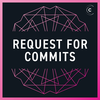Brendan Eich, founder of Brave and creator of JavaScript, joined the show to talk about the history of the web, how it has been funded, and the backstory on the early browser wars and emerging monetization models. We also talked about why big problems are hard to solve for the Internet and the tradeoffs between centralization and distribution.
Brendan Eich: You know, you can still get, as I say, search revenue. We actually have search partners already. DuckDuckGo is a search partner, and we’re making lunch money from them… Which is good. And we help build that up, because people who skew toward Brave do like DuckDuckGO. That’s an up-and-coming search engine that emphasizes privacy, so it’s in many ways aligned with us. It’s just not our default search engine because Google’s still the people’s choice, as far as we can tell. And as they say, on the long tail of multiple keyword queries, it’s still the best.
[30:02] If we didn’t make Google the default, we suspect a lot of our users would reset from our default DuckDuckGo to Google, and then we would be stuck, because ethically and in the market we wouldn’t wanna override their choice. We could never get them back on a default that might be a better search engine down the road.
This actually happened to Firefox - it’s public information, people studied this identity-solving search engine log. If you look at what happened with the Yahoo! search deal, in December 2014 they made Yahoo! the default search for Firefox, and we’d had Google since Phoenix, since forever. We had a good commercial deal since 2004. That Yahoo! default didn’t stick. A lot of users rest to Google over time. Yahoo! was probably paying - I don’t know, but I’m guessing they were paying a lot, possibly even a guarantee payment, for a declining traffic.
We don’t wanna do that in Brave, but we will make some search revenue from people who choose DuckDuckGo. And as the game theories would suggest, all the non-Google search engines generally are willing to pay for non-default traffic; that is for those users who choose to switch to DuckDuckGo or Bing. They’ll pay better if you make them the default, and Bing is still trying to grow, so they’ll do deals like I mentioned, Vivaldi, as far as I know they’re still using Bing as the default, but… We can get some money out of search, it’s just not gonna be huge and we don’t wanna count on it exclusively.
Another idea we have is the microdonations we’re already supporting with the Brave payments beta. If you use Brave right now, since 0.12 one or two, you can actually get money into your user wallet and have it sort of deterministically anonymously and with low transaction costs distributed among your top sites. You can turn off the sites you don’t wanna support. You have 30 days of ongoing personal chartbeat in your own browser - this is on-device only, no tracking. And at the end of that 30-day period, which is a personal period, there’s reconciliation. Anything you excluded or decided at the last minute you didn’t wanna fund gets left out. The other sites get what are essentially votes in sort of a zero knowledge proof voting system based on some cool academic work called Anonize and that gets sent through a VPN connection to our infrastructure, so we don’t even see your IP address. Then we mix it all together and we count the votes and we count the funds - a lot of people are putting $5/month in this system - and we distribute it to publishers; we’re starting to do that now, just this week. I think our publishers pays will be up very soon.
[32:47] That means we get some small fee-based revenue off of that, but we have to cover our infrastructure costs. I’m not sure that will make us a lot of money either, but that’s another way we’ll make some money. I think if everybody who used Brave donated $5/month, they’d be essentially replacing their average cost or median cost in terms of lost ad revenue. That would be cool. I don’t think everyone’s gonna do it. Also, we need to get a million users, ten million users, a hundred million users. But if all those ifs came true, everybody did $5/month, and we have a hundred million users, we’d be making $3/user/year - that’s $300 million. That’s enough to run a browser like Firefox. That’s what Firefox often ran on in the old days.
I think it would be nice for that to happen, but I don’t think that will happen. I think the donor cohort will decline as a fraction of our user base. NPR gets like 30% listeners donating, but they do pledge drives, they’re a nonprofit. We are getting early adopters skewing toward donating. We have like 11,000 wallets and we’re only in beta; the average balance in the wallet is over $5, so people are doing this, but it’s voluntary, so we can’t count on it either. But we’d like to build it up and see how big it can get.
We think it’s a good deal for publishers too, because they don’t have to worry about the lost ad revenue if they’re getting these donations trickled back to them through the Brave payments.
I mentioned Brave payments as an auto micro-donation system, but there’s general ecommerce we could do with Brave payments. If it’s just on the Bitcoin blockchain, it could not involve us, there’s no need for an intermediary (that’s one of the beauties of Bitcoin) and we wouldn’t make anything. But we’d like to enable that. We think that there’s upside there.
Generally, there’s too much friction buying things on the web, still. Obviously, if you have an iTunes or Amazon credit card relationship, it’s one click and away you go. But you don’t wanna do that with every ecommerce site you might wanna buy something from. It’s kind of scary to give over your credit card to another site, with all the breaches. People sometimes use Paypal, but Paypal has its issues and it’s not universal.
We’d like to make frictionless small payments a thing, a web standard, if you will. And there’s nothing proprietary about it, we’d like to have Brave just be a pioneer, just like pop-up blocking or tab browsing was known before Firefox or Phoenix, but we popularized it. We’d like to make future payments that are frictionless - no intermediary, no interchange charge… We’d like to make that a thing.






